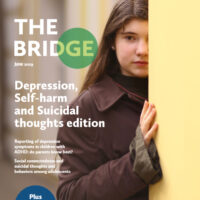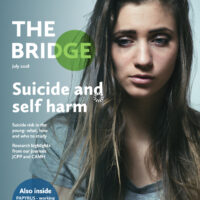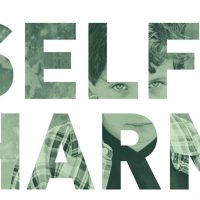Self-harm is an increasingly recognised phenomenon and one of the strongest predictors of suicide, which continues to be one of the leading causes of death in young people world-wide. Self-harm can take many forms and may present with or without suicidal intent and both in the context of mental disorder, and without.
Self-harm & Suicide
-

Depression, Self-harm and Suicidal Thoughts
There are good treatments available for depression, (pharmacological and non-pharmacological) though more options are required to meet the needs of those that do not respond well to treatment. The costs to society, not just the treatment cost but also cost to individuals and wider society including education and employment, are huge.
Read more -

Self-Harm & Suicide Issue
As a clinician, it certainly does feel that more and more young people are being referred, following self harm or with suicidal ideas, to the CAMHS service I work in. This nationwide increase in numbers is acknowledged in recent government reports, which are summarised in this edition.
Read more -

Machine learning approach predicts suicide risk
A study has evaluated the performance of machine learning on routinely collected electronic health records, as a possible approach to accurately screen and detect adolescents at risk of making suicide attempts.
Read more -

The family environment mediates risk of self-harming
Non-suicidal self-injury (NSSI) constitutes any deliberate physical injury to oneself that is not life-threatening. It is a behaviour that commonly starts during adolescence. Childhood family adversity (CFA) is associated with NSSI, but the risk pathways between CFA and NSSI are unclear.
Read more -

Self-harm & Suicide
Self-harm is an increasingly recognised phenomenon and one of the strongest predictors of suicide, which continues to be one of the leading causes of death in young people worldwide. Self-harm can take many forms and may present with or without suicidal intent and both in the context of mental disorder, and without.
Read more -

Self-Harm: The Parent’s View
Though it is not always openly discussed, the impact self-harm has on the individual and their family, can be very distressing. For someone to recover from ‘rock-bottom’ requires support, with family being an obvious source. It makes sense that the pillars of this support system, parents in most cases, feel equipped to support their child in recovering from such an experience. Saying this, there is little research on parents’ perspective of care following self-harm.
Read more